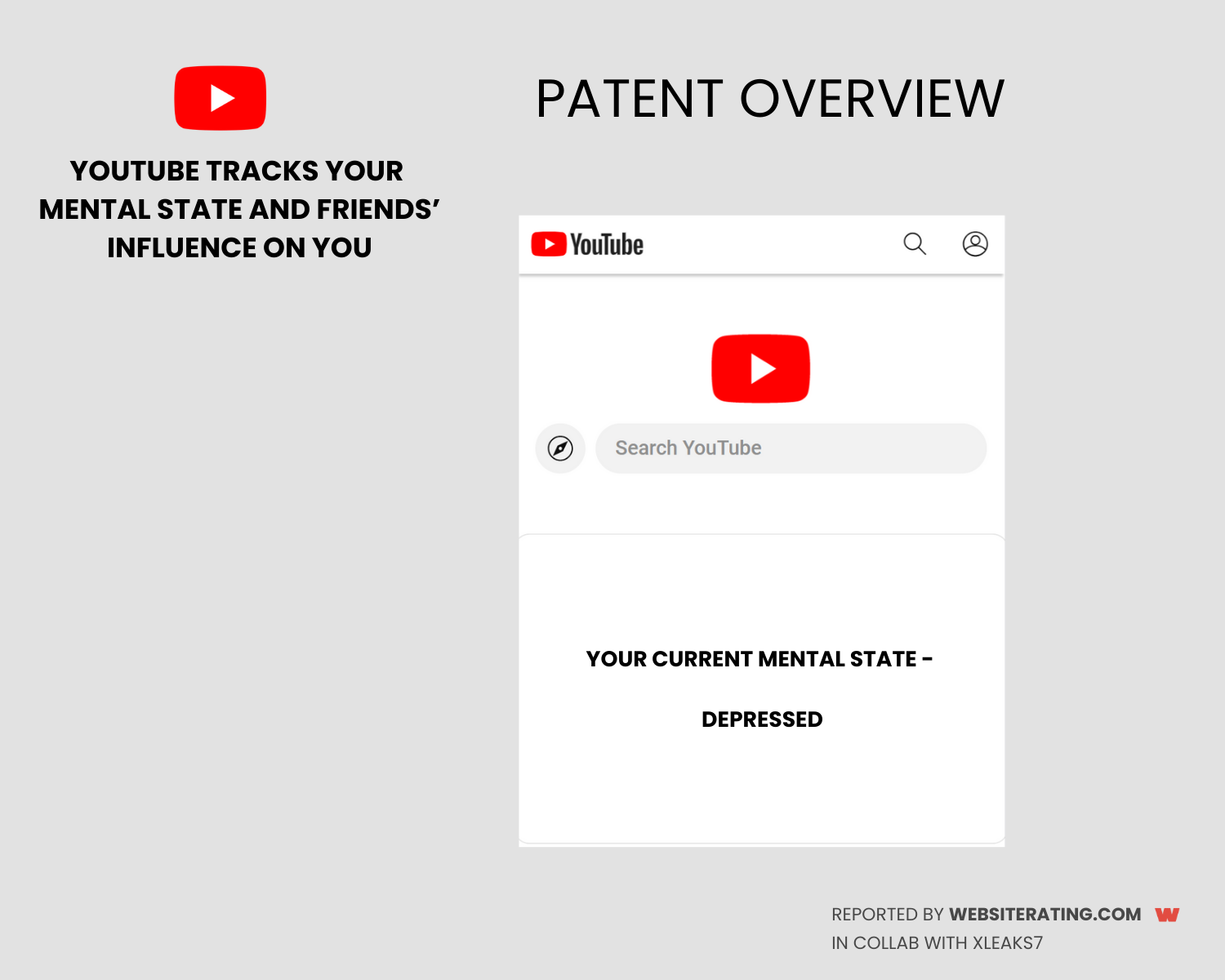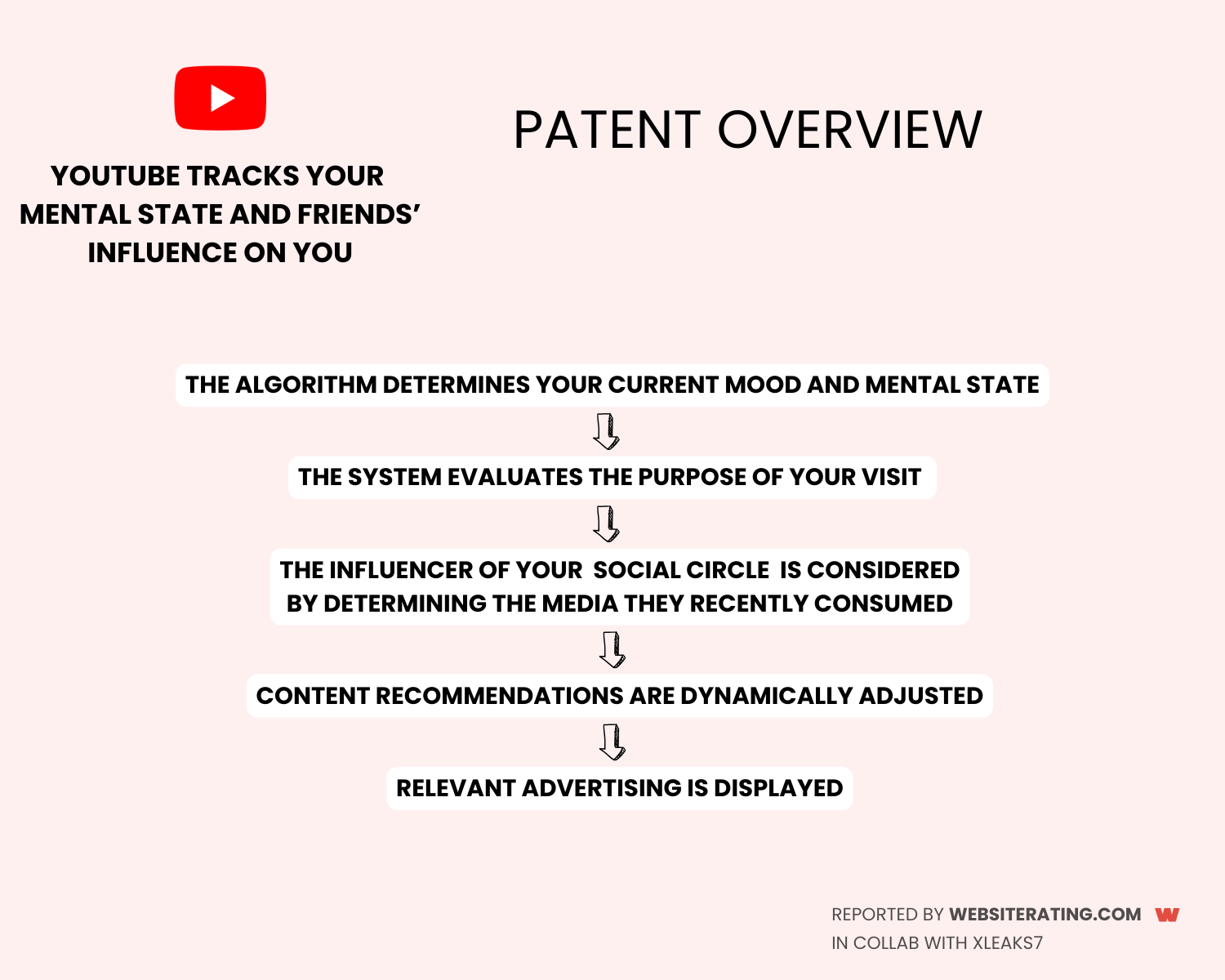In our dynamic digital era, personalized content recommendations have become an integral part of our online journey. It’s not a surprise that the content we consume can affect our real lives. Last year, YouTube started limiting potentially harmful content suggestions to protect teens’ mental health.
At this time, thanks to our collaboration with David from @xleaks7, we spotted some more details in Google’s recently published patent.

The new technology promises to transform the landscape of content suggestions, providing a more attuned and personalized experience for users navigating the vast realm of digital media.
For relevant recommendations, YouTube not only determines your current mood but also considers your friends’ influence on you by tracking content they recently watched. Wow!
More on these below.
The Problem the Patent is Going to Solve
In the realm of online content, recommendations are often based on our past interactions, overlooking the nuances of our present emotions and context.
YouTube has likely spotted patterns that users don’t consume content just based on their interests and past interactions. A big role plays current mood and mental state.
The patent we’re exploring seeks to bridge this gap, introducing a pioneering solution that factors in the user’s current mental state and context during a media session.
Patent’s Core:
At the core of this patent are sophisticated systems and methods designed to redefine how we engage with digital media.
A crucial aspect is a “state component” that assesses a user’s mood and context during their ongoing interaction with a media system.
By analyzing navigation patterns, played media items, and user reactions, this component gauges the user’s mental state, ensuring that content suggestions are not only relevant but also aligned with the user’s current emotional disposition.

Key Points of the Patent:
Real-time Mood Analysis: The patent employs advanced algorithms to determine the user’s mood in real-time. The system captures real-time information about a user’s navigation, content access, and interaction with a media provider during a session.
Determining User Purpose: The system analyzes the user’s current media session to determine if it’s for entertainment, education, work, or other purposes.
Influence of User’s Social Circle: The system even considers the content accessed by the user’s friends during the current session, influencing the user’s preferences.
Dynamic Content Recommendation: The system dynamically adjusts content recommendations over the course of a user’s session, ensuring relevance to the evolving state of mind and context.
For example, media content that is being watched, liked, shared, etc., by a user’s friends at a streaming media provider while the user is conducting a current session with the streaming media provider can influence what content the user may also be interested in during the user’s current session.
According to this example, when a bunch of the user’s friends are conducting sessions with the streaming media provider at the same time as the user and watching a particular live sports video, it can be assumed that the user would likely be interested in watching the sports video as well. Accordingly the live sports video can be recommended to the user during the user’s current session.
Scoring Video and Channel Trailers: The system scores and ranks video and channel trailers for relevance and suitability during the user’s session.
Targeted Advertising: An Advertisement Component facilitates targeted advertising based on the user’s current state of mind and context.
What to Expect in the Future:
As this patent paves the way for a more intuitive and personalized content experience, we can anticipate a future where our digital interactions seamlessly adapt to our ever-changing moods and preferences.
Expect more refined content suggestions, a deeper understanding of user context, and an overall enhancement in the way we engage with digital media platforms.
However, it’s always surprising how much data tech giants like Google use to keep their users engaged on the platform.
NOTE TO EDITORS: The text and visuals of this article are the intellectual property of websiterating.com. If you want to share the content, please give a proper clickable credit. Thanks for understanding.
